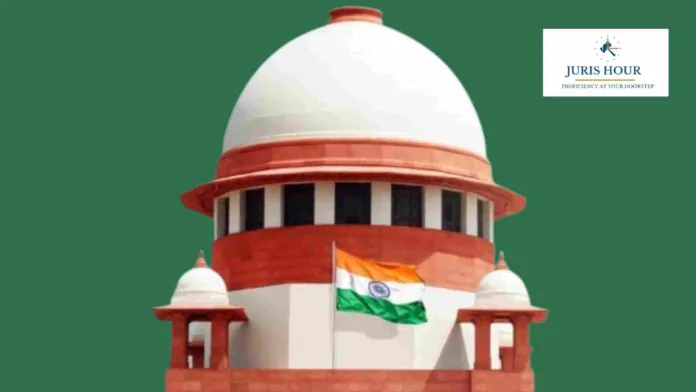The Supreme Court has held that the NCLT had rightly found evidence of oppression and mismanagement in the company’s affairs and had the jurisdiction to adjudicate on the validity of the disputed gift deed and share transfer.
The bench of Justice Dipankar Datta and Justice K. Vinod Chandran ruled that set aside a National Company Law Appellate Tribunal (NCLAT) order and restored the earlier judgment of the National Company Law Tribunal (NCLT), Allahabad, in a long-standing dispute over the ownership and management of Satori Global Limited.
The case dates back to 2006, when the company, initially incorporated as Sargam Exim Private Limited and later renamed Satori Global Limited, was promoted by the appellant and her husband. The appellant gradually acquired nearly 98% of the shareholding, becoming the dominant shareholder and an executive director.
In December 2010, however, the appellant was shown to have resigned from the directorship and to have transferred her shares through a gift deed to her mother-in-law. She later alleged coercion and manipulation, claiming that blank signed documents had been misused. Subsequently, her name was removed from the shareholder register, and the company was converted into a public limited entity.
In 2018, the NCLT found that the board meetings leading to her resignation and the share transfer were invalid, reinstated her as director, and restored her ownership of 39,500 shares. The NCLAT, however, reversed this decision in June 2023, holding that questions of fraud and coercion could only be decided by a civil court.
The Supreme Court disagreed with the NCLAT’s approach, holding that the NCLT has wide jurisdiction under Sections 397 and 398 of the Companies Act, 1956, to deal with matters of oppression and mismanagement, including fraudulent transfers of shares.
Key findings include:
- Gift deed invalid: The transfer of shares to the mother-in-law violated the Articles of Association, which did not permit such a transfer, and was surrounded by suspicious circumstances.
- Share transfer forms suspect: The forms were signed beyond their validity period, contained overwriting of dates, and showed evidence of manipulation.
- Board meetings unlawful: The meetings on December 15 and 17, 2010, were held without proper notice and quorum, rendering all resolutions, including acceptance of the appellant’s resignation, invalid.
- Oppression and mismanagement established: The conduct of the company’s affairs was prejudicial to the appellant and lacked probity.
The Supreme Court restored the NCLT order, declaring the appellant the lawful owner of the shares, reinstating her as director, and setting aside the disputed board resolutions. The court emphasized that remedies under company law are intended to bring an end to oppressive practices and not force aggrieved shareholders into lengthy civil trials.
The judgment is expected to have a far-reaching impact on disputes involving family-run companies, reinforcing the principle that corporate tribunals can adjudicate on fraudulent transfers if they form part of oppression and mismanagement claims.
Case Details
Case Title: Mrs. Shailja Krishna Vs. Satori Global Limited & Ors.
Case No.: Civil Appeal Nos. 6377-6378 Of 2023
Date: September 02, 2025
Read More: CP Radhakrishnan Elected as India’s New Vice President

